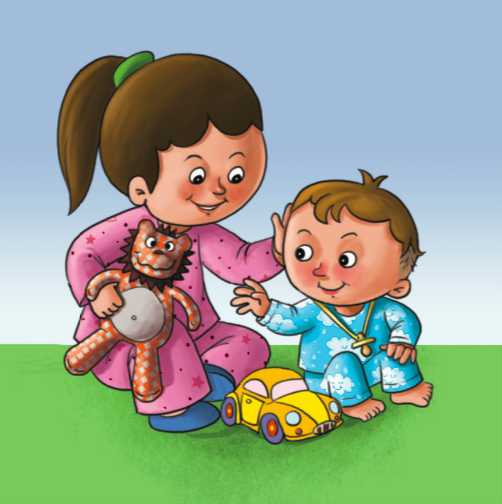
Love is a powerful emotion, encompassing affection, attraction, and attachment toward someone or something. In the context of a family, love plays a vital role in shaping a child's emotional and psychological well-being. Creating a loving and stable environment for children not only makes them happier but also enhances their self-confidence and overall comfort. This blog will explore ways to express love to children and highlight the adverse effects of emotional neglect within the home.
Ways to Express Love
1. Physical Intimacy
Simple gestures like hugging, patting on the shoulder, or holding hands can convey love and support. Physical touch can create a sense of security and warmth, helping children feel loved and valued.
2. Verbal Affirmations
Expressing love through words is powerful. Phrases like "I love you," "You are great," or "I’m proud of you" can significantly boost a child's self-esteem and help them feel appreciated.
3. Acts of Care
Small acts of care, such as giving your father a glass of water on a hot day or helping your mother tidy up the house, are tangible expressions of love. These actions not only show appreciation but also contribute to a loving home environment.
4. Helping Others
Offering help without complaint, whether it’s assisting a friend in need or doing household chores, demonstrates a loving and supportive attitude. It teaches children the importance of kindness and responsibility.
5. Providing Security
Standing up for children and protecting them from harm is a vital aspect of love. A secure environment allows children to grow and thrive, free from fear and anxiety.
6. Emotional Support
Comforting a child or family member who feels sad shows empathy and understanding. Offering a listening ear and a comforting presence can make a world of difference to someone feeling down.
7. Sharing Joy
Simple gestures like smiling and making others happy can foster a positive and loving atmosphere. Sharing toys or offering small gifts, such as a flower to a teacher or a chocolate bar to a classmate, are ways to spread love and kindness.
8. Forgiveness and Praise
Being forgiving towards others and offering praise when it's due are essential aspects of love. These actions teach children the value of compassion and reinforce positive behavior.
The Impact of Emotional Neglect
While expressing love is crucial for a child's development, emotional neglect in the home can have serious consequences. When a child's emotional needs are overlooked, it can lead to:
1. A Lack of Security
Emotional neglect can make children feel unsafe and unsupported, leading to anxiety and insecurity.
2. Low Self-Confidence
Without love and affirmation, children may struggle with self-esteem and lack the confidence to pursue their goals and dreams.
3. Aggressive Behavior
Children who feel emotionally neglected may resort to violent or aggressive behavior as a way to gain attention or express their frustration.
4. Mental and Physical Health Issues
The stress of emotional neglect can make children more susceptible to mental illnesses, such as depression, and physical health problems.
5. Isolation
A lack of emotional connection at home can lead to feelings of loneliness and isolation, as children may struggle to form healthy relationships with others.
6. Depressive Mood Swings
Emotional neglect can contribute to mood swings and depressive episodes, making it difficult for children to manage their emotions.
7. Poor Academic Performance
Without the emotional support they need, children may struggle academically, as their ability to focus and succeed in school is compromised.
8. Holding Grudges and Jealousy
Emotional neglect can foster feelings of resentment and jealousy, leading children to hold grudges against others and struggle with interpersonal relationships.
Love is essential for a child’s emotional and psychological development. By expressing love through physical intimacy, verbal affirmations, acts of care, and emotional support, we can create a nurturing environment that helps children thrive. On the other hand, emotional neglect can have long-lasting and damaging effects, underscoring the importance of love and attention in a child's life. Let’s commit to showing our love to the children in our lives, ensuring they grow up feeling valued, secure, and happy.